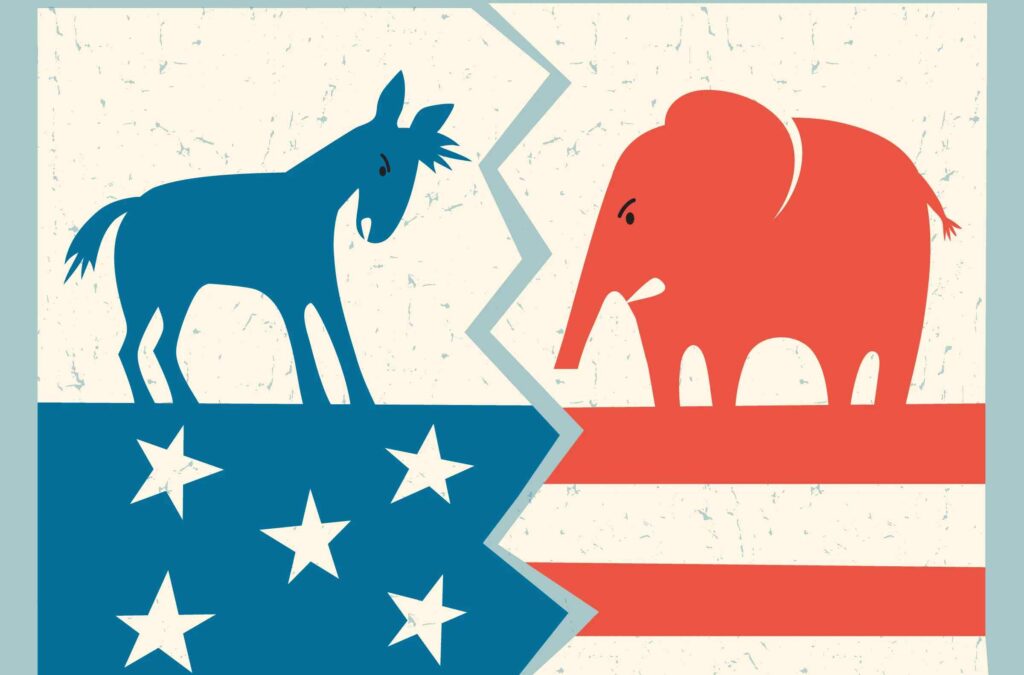Affective Forecasting Affect

The study of human emotions is a complex and ever-evolving field in psychology and cognitive science. One of the fascinating areas of research is how people predict their future emotional states, a phenomenon known as affective forecasting. More specifically, the term “affective forecasting affect” encapsulates the psychological and cognitive dimensions of how individuals predict and experience emotions. This article will delve into the mechanisms behind this process, the errors people commonly make, and its broader implications on decision-making and well-being.
Defining Affective Forecasting

Affective forecasting refers to the process by which individuals predict their future emotional reactions to specific events. People routinely make predictions about how they will feel in response to anticipated outcomes, from mundane decisions such as choosing a meal to life-altering ones like getting married or moving to a new city. The accuracy of these predictions is critical, as they often guide decision-making. The psychological and cognitive mechanisms involved in affective forecasting are complex, encompassing various aspects of thought, memory, and emotion.
The concept of “affective forecasting affect” highlights the centrality of emotion in these predictions. It is not merely about anticipating an event but involves an intricate web of cognitive processes that shape how we expect to feel and how these expectations affect our decisions. This phenomenon is crucial in understanding why people often misjudge their future emotional responses, leading to decisions that may not align with their actual future well-being.
Cognitive Mechanisms Behind Affective Forecasting Affect
Affective forecasting involves several cognitive processes, including memory, attention, and imagination. When individuals engage in affective forecasting, they often draw on past experiences to predict future emotions. For example, someone who experienced joy at a past social event might predict that they will feel similarly happy at a future gathering. However, this process is not always accurate, as it is influenced by various cognitive biases.
One such bias is the “impact bias,” which refers to the tendency for people to overestimate the intensity and duration of their future emotions. The affective forecasting affect is shaped by this bias, leading individuals to believe that a particular event will make them much happier or sadder than it actually will. This can result in skewed decision-making, as people may choose options that they believe will maximize their emotional well-being, only to find that their predictions were inaccurate.
Memory plays a crucial role in affective forecasting affect. When individuals try to predict their future emotions, they often rely on memories of similar past experiences. However, memory is not always reliable, and people tend to remember emotionally charged events more vividly than neutral ones. This selective memory can distort affective forecasting affect by making certain emotions seem more salient or significant than they actually are.
Emotional Amplification in Affective Forecasting Affect

Another critical aspect of affective forecasting affect is the phenomenon of emotional amplification. When predicting future emotions, individuals often imagine scenarios in vivid detail, amplifying the emotional impact of those imagined events. This can lead to exaggerated predictions of how intensely they will feel in the future. For example, someone who is anxious about an upcoming presentation might vividly imagine every possible mistake and embarrassment, leading them to overestimate their future anxiety.
This emotional amplification is part of the broader cognitive process of “simulation,” where individuals mentally simulate future events to predict their emotional outcomes. The affective forecasting affect is significantly influenced by these simulations, as the more vividly an event is imagined, the stronger the predicted emotional response tends to be. However, these simulations are not always accurate, as they often focus on extreme outcomes rather than more likely, moderate scenarios.
The Role of Presentism in Affective Forecasting Affect
“Presentism” is another cognitive phenomenon that impacts affective forecasting affect. Presentism refers to the tendency for individuals to project their current emotional state onto future events. For example, someone who is currently feeling anxious might predict that they will also feel anxious in the future, even if the future event is unrelated to their current state. This bias can distort affective forecasting affect by making people believe that their future emotions will mirror their present ones, leading to inaccurate predictions.
Presentism is particularly influential in situations where individuals are under stress or experiencing strong emotions. In these cases, the affective forecasting affect is heavily colored by the individual’s current emotional state, which can lead to poor decision-making. For instance, someone who is feeling lonely might overestimate how much happiness a new relationship will bring, not realizing that their current loneliness is skewing their forecast.
Emotional Adaptation and Affective Forecasting Affect
One of the key findings in the study of affective forecasting affect is the phenomenon of emotional adaptation. Research has shown that people often adapt to both positive and negative events more quickly than they expect. For example, individuals might predict that winning the lottery will bring them lasting happiness or that losing a job will cause prolonged sadness. However, in reality, people tend to return to a baseline level of emotional well-being over time, regardless of the initial intensity of the event.
This process of emotional adaptation significantly affects affective forecasting affect. People often fail to account for their ability to adapt to changes, leading them to overestimate the long-term emotional impact of future events. This miscalculation can have significant implications for decision-making, as individuals may prioritize short-term emotional gains over long-term well-being.
Affective Forecasting Affect and Decision-Making

The affective forecasting affect plays a crucial role in decision-making, as people often base their choices on how they expect to feel in the future. For example, someone might choose a career path that they believe will make them happy, or avoid a risky situation because they fear it will lead to regret. However, the cognitive biases and errors inherent in affective forecasting affect can lead to suboptimal decisions.
One of the most common errors in affective forecasting is the “focusing illusion,” where individuals place too much emphasis on one aspect of a future event, neglecting other factors that will influence their emotions. For instance, someone might focus solely on the financial benefits of a job offer, overlooking how the work environment or commute might affect their overall happiness. This narrow focus can distort affective forecasting affect, leading to decisions that do not fully align with the individual’s broader emotional needs.
Another important consideration is the role of “regret aversion” in affective forecasting affect. People often make decisions in an attempt to avoid future regret, predicting that they will feel worse if they choose a certain option. However, research suggests that people are not always good at predicting what will lead to regret, and they may overestimate the emotional impact of regrettable decisions. This can lead to overly cautious decision-making, as individuals prioritize avoiding negative emotions over pursuing positive outcomes.
Improving Affective Forecasting Affect Accuracy
Given the many cognitive biases and errors that can distort affective forecasting affect, one important question is how individuals can improve the accuracy of their predictions. Research suggests several strategies that may help mitigate these biases and lead to more accurate affective forecasting.
One such strategy is “experience sampling,” where individuals track their emotions in real time during various events. By keeping a record of how they actually feel in different situations, people can develop a more accurate understanding of their emotional responses and improve their affective forecasting affect. This method helps counteract memory biases, as it relies on actual data rather than subjective recollections of past events.
Another approach is “temporal distancing,” which involves imagining how one might feel about a decision or event in the distant future rather than immediately after it occurs. By shifting their focus to the long term, individuals can reduce the impact of short-term emotional amplification on their affective forecasting affect. For example, someone considering a major life change might imagine how they will feel about it five years down the line, rather than just focusing on the immediate emotional impact.
Mindfulness practices can also help improve affective forecasting affect by promoting greater awareness of one’s current emotional state and reducing the influence of presentism. By cultivating a more objective perspective on their emotions, individuals can avoid projecting their current feelings onto future events, leading to more accurate predictions.
The Broader Implications of Affective Forecasting Affect

The implications of affective forecasting affect extend beyond individual decision-making to broader societal and cultural contexts. For example, consumer behavior is heavily influenced by affective forecasting, as people often purchase products or services based on how they expect these purchases will make them feel. Advertisers frequently capitalize on this by creating emotional appeals that shape affective forecasting affect, leading consumers to believe that a particular product will bring them happiness or satisfaction.
In the realm of public policy, affective forecasting affect plays a role in how individuals evaluate potential outcomes of policy decisions. For instance, voters might support or oppose a policy based on how they predict it will affect their future well-being, even if these predictions are inaccurate. Understanding the cognitive biases that influence affective forecasting affect can help policymakers design interventions that take into account how people actually experience emotional outcomes, rather than relying solely on their predictions.
Furthermore, affective forecasting affect has significant implications for mental health and well-being. Individuals who consistently overestimate negative emotions or underestimate their ability to cope with future challenges may be more prone to anxiety and depression. Conversely, those who are overly optimistic in their affective forecasting affect may be disappointed when reality does not meet their expectations, leading to dissatisfaction and frustration.
Conclusion
In conclusion, the affective forecasting affect is a complex and multifaceted phenomenon that plays a central role in how individuals predict their future emotional states. Influenced by cognitive processes such as memory, attention, and simulation, affective forecasting affect is often subject to various biases that can lead to inaccurate predictions and suboptimal decision-making. By understanding the psychological and cognitive mechanisms behind affective forecasting affect, individuals can work towards improving the accuracy of their emotional predictions, ultimately enhancing their well-being and decision-making abilities. Whether in personal choices, consumer behavior, or public policy, the affective forecasting affect remains a critical factor in shaping human experiences and outcomes.
